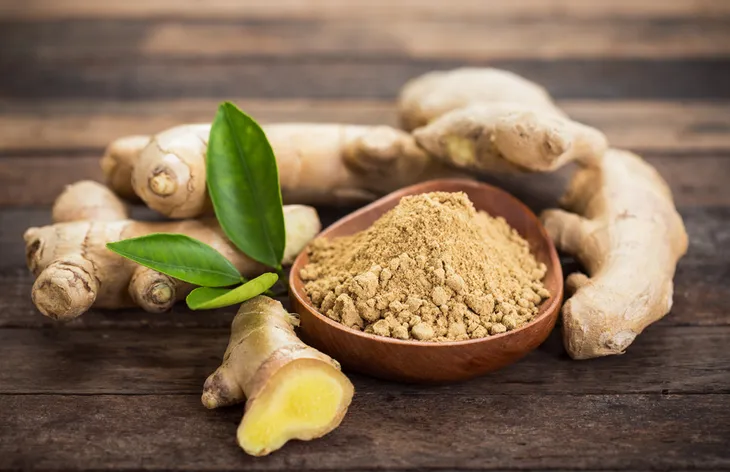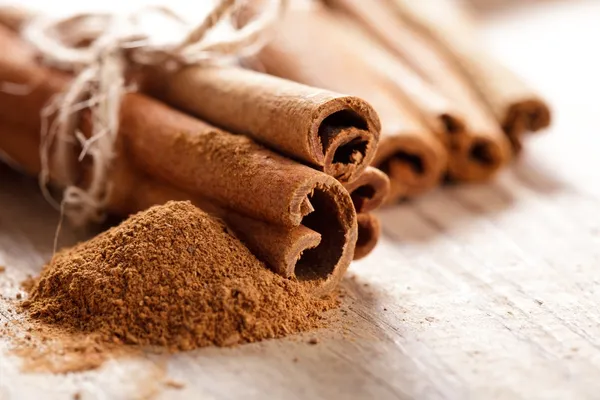- Staying hydrated and getting enough rest are key behavioral changes to heal bacterial gastroenteritis quickly.
- Some home remedies that may help bacterial gastroenteritis include bananas, yogurt, apple cider vinegar, and turmeric, among others.
- Be sure to contact your doctor if symptoms persist without improvement for more than five days.
The dreaded stomach flu can strike at any time — summer, spring, winter or fall. Unlike its less nasty cousin, the head cold, the stomach flu is virtually impossible to ignore or push through, as it often leaves people in a position where they simply can’t stray too far from the bed or bathroom.
Generally speaking, most bacterial gastroenteritis afflictions will pass in time. But there are a number of home remedies and general behavioral changes that can help speed up recovery time and get you out of bed and back to doing the things you love (like enjoying weekends withe the family) or need to do (like going to work). Let’s take a look at some of these simple remedies here.
Drink Lots of (The Right) Fluids
Should you come down with the stomach flu — or something similar, like a bad head cold — chances are your doctor will tell you to take time off work, rest, and drink lots and lots of fluids. Of course, not all fluids are capable of helping you overcome a nasty stomach flu.
BetterHealth suggests that first and foremost, drink as much water as you can. Other drinks, such as green tea, low-calorie fruit juice, and sports drinks, may also help you start to recover. But you’ll want to avoid fluids that won’t do you any good (such as coffee, tea, and sugary beverages like soda) and especially those that could actually hurt your recovery (like alcoholic drinks).
Ice Chips
One of the major problems with the stomach flu is that, as it drags on, your body desperately needs more fluids but often can’t seem to keep them down. In other words, if your stomach flu is so bad that you seem to be throwing up constantly, it can be extremely difficult to drink water or other fluids and keep them from coming right back up.
Mayo Clinic suggests that the solution for some people are bits of ice, or pieces of ice small enough that they won’t disturb your stomach and cause you to throw up. By consuming little bits of ice, you can not only help rehydrate your body — which will have lost much of its fluid through vomiting — but you can help cool yourself down, which is especially helpful in cases where there’s a high fever.
Bananas
So long as you’re not a huge hater of bananas, they can make for excellent snacks for those suffering through a stomach flu. That’s because they’re relatively easy to ingest, as they can be broken down to a thick fluid that can be slowly eaten. At the same time, bananas contain lots of potassium, a key nutrient that can be lost when someone begins vomiting on a regular basis.
If bananas won’t work, worthy alternatives include rice, toast, and applesauce. The first two contain fiber, which can help firm up your stool and improve digestion. Applesauce, meanwhile, contains valuable vitamins and nutrients that can help your body begin to claw back from the miserable depths of the stomach flu.
 My Bokeh Life / Shutterstock.com
My Bokeh Life / Shutterstock.comPeppermint Tea
Peppermint tea has been used for centuries to help calm the stomach and lower the chance that someone will need to vomit while recovering from the stomach flu.
Of course, if you can’t find peppermint tea, there are alternatives, including ginger tea, which has also been shown to help with nausea. If that’s tough to find — or you simply don’t want to leave your home to get some — try warming up some water and adding lemon. The warm lemon water can help calm your stomach and provide you a little boost of vitamin C.
Cinnamon
Most of us have cinnamon in the house, as it makes an excellent addition to just about any time of sweet dish, from pancakes and French toast to ice cream and even cocktails. Surprisingly, however, cinnamon may actually be able to help settle the stomach and relieve flu-like symptoms, according to MedicineNet.
So, don’t be afraid to add cinnamon to your favorite non-diuretic beverage, including caffeine-free tea or ice water. If you’re having trouble keeping food down, try mashing up some bananas and adding a couple dashes of cinnamon to the mixture.
Rest
Getting lots of rest: it’s one of the most important parts of starting to overcome an illness like the stomach flu, and yet so many people completely ignore it. That’s somewhat understandable in a society that pushes us to do more and work harder, but in the end not getting enough rest can seriously prolong the stomach flu and make it more difficult to overcome.
If you’ve contracted the stomach flu, you should not be going to work, hitting the gym, or going out for drinks with friends. Instead, you should be at home in bed, trying to get as much sleep as possible. Failing to do so could see your condition worsen significantly.
Yogurt
Some yogurts contain particularly high levels of probiotics, which some health experts believe can help in the digestive process. If you’re struggling with the stomach flu, and you can handle eating something creamy without immediately throwing it back up, then yogurt may be the right choice for you.
Look for a brand of yogurt that specializes in probiotics, which could be particularly helpful if your case of stomach flu is accompanied by watery diarrhea. Just try to find yogurt that isn’t packed with saturated fat and has only a small amount of added sugar.
 Shutterstock/DONOT6_STUDIO
Shutterstock/DONOT6_STUDIOApple Cider Vinegar
Apple cider vinegar is another remedy that may be effective to try at home to treat bacterial gastroenteritis. According to Healthline, apple cider vinegar is a natural antibiotic, which means it may be effective to treat symptoms resulting from resulting from bacterial infections such as nausea, diarrhea, and general stomach upset.
If you do try this treatment, however, it’s important to ensure you dilute the apple cider vinegar. A general rule of thumb is to mix one or two tablespoons of apple cider vinegar into a large glass of liquid. This could be water, tea, or juice.
 Shutterstock/denira
Shutterstock/deniraTurmeric
Turmeric is known for its anti-inflammatory and antioxidant properties, which can be helpful in treating bacterial gastroenteritis. According to Medical News Today, curcumin is the major component of turmeric and is the active ingredient that is known for its powerful biological properties.
Studies on the benefits of turmeric are relatively new in Western medicine, but has been a longtime component of ayurvedic medicine. Turmeric can also aid in digestion and is used in ayurvedic medicine as a digestive healing agent. Turmeric is available in many forms including capsules, teas, powders, and extracts.
 Shutterstock/tarapong srichaiyos
Shutterstock/tarapong srichaiyosSimple Carbohydrates
When your stomach is struggling with bacterial gastroenteritis, certain foods may trigger or irritate your system. For this reason, it’s often recommended to focus your diet on simple carbohydrates or the BRAT diet, as previously mentioned, during this time when your stomach is extra sensitive.
WebMD explains that components of the BRAT diet include bread, rice, applesauce or toast. These foods are bland and binding, which means they are easy to digest and can make your stools more firm to counteract the effects of the infection.
 Shutterstock/5 second Studio
Shutterstock/5 second StudioGinger
Ginger has been used since ancient times as a remedy for many ailments including pain, nausea and general stomach upset. According to Healthline, ginger warms the stomach and acts as a tonic for the digestive system.
Ginger is a natural anti-inflammatory and is available in many forms. Ginger chews and supplements are options, while others prefer to consume ginger in beverage form whether this be an all-natural ginger ale or chopping up ginger root and steeping in a tea.
 Shutterstock/pilipphoto
Shutterstock/pilipphotoWhen To Contact A Doctor
While there are many at-home remedies you can try to heal your bacterial gastroenteritis, it’s important to recognize when it’s time to talk to a doctor. Healthline recommends reaching out to your doctor if your symptoms do not improve after five days of seeking the natural route.
In children, it’s recommended to contact a doctor if symptoms do not improve after two-days or if vomiting continues for more than twelve-hours. If your child is younger than three months, you should contact a doctor right away if your baby has diarrhea or vomiting.
 Shutterstock/fizkes
Shutterstock/fizkes







